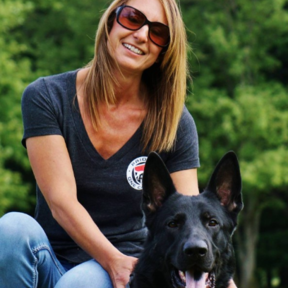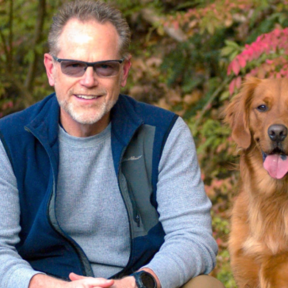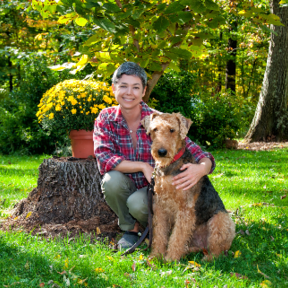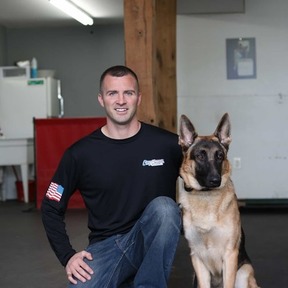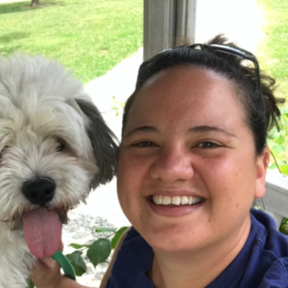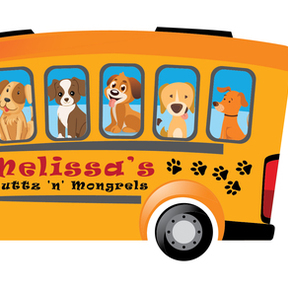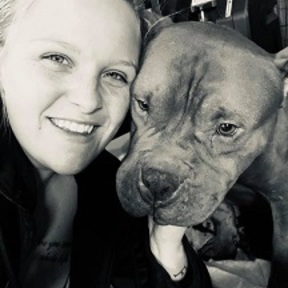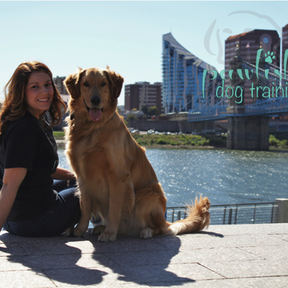nearest to you
- Lori Morrell
- Buckeye K9 - Private Dog Training Service - Obetz, OH
-
 CERTIFIED
CPDT-KA
CERTIFIED
CPDT-KA
- Obetz, OH - Professional Dog Training, Boarding & Doggie Day Care in Columbus, Ohio. We specialize in obedience & behavior training for dogs, and their people. Buckeye K9 has two...
-
-
- Licensed
- Certified
- Insured
- BBB Accredited
- Request Quote
- Brett Suttle
- Rude Dog Private K9 Training - Canal Winchester, OH
-
 RED CROSS
CERTIFIED
RED CROSS
CERTIFIED
- Canal Winchester, OH - Welcome to Rude Dog K9 Training located in Canal Winchester, Ohio! Dogs truly are Man’s Best friend and a huge part of our family. The issue...
-
-
- Licensed
- Certified
- Insured
- Request Quote
- Annette Neff
- Pet Behavior Associates - Dog Obedience Private Training - Galena, OH
-
 CERTIFIED
CPDT-KA
CERTIFIED
CPDT-KA
- Galena, OH - Dog Behavior Training is a combined course in obedience training and behavioral management. I specifically developed the course for dogs and puppies with the needs of pet...
-
-
- Certified
- Request Quote
- Kelly McFerron
- The Pawsitive Approach - Certified Private Dog Trainer - Delaware, OH
-
 CERTIFIED
CPDT-KA
CERTIFIED
CPDT-KA
- Delaware, OH - For over a decade, I've been dedicated to enhancing the lives of pets and their owners as a Certified Professional Dog Trainer (CPDT-KA), serving the areas around...
-
-
- Certified
- Request Quote
- Tera Jurrens
- Freedom Paws Assistance Dogs - Private Dog Training - Marysville, OH
- Marysville, OH - Freedom Paws Assistance Dogs is a not for profit 501c3 assistance dog organization. Founded in 2012 we have placed over 100 assistance dogs with people with physical,...
-
-
- Request Quote
- Janice Ensign
- Ensign K9 Training - Certified Private Dog Trainer - Utica, OH
- Utica, OH - As a certified Master Dog Trainer with over 30 years of experience, I have dedicated my career to providing affordable and effective training solutions for pets and...
-
-
- Certified
- Online Sessions
- Request Quote
- Roger White
- Offleashk9training - Private Dog Training Service - New Carlisle, OH
- New Carlisle, OH - At Offleashk9training, we are proud to serve the Dayton, Ohio area with over three years of dedicated experience in dog training and behavior consultations. Our team...
-
-
- Request Quote
- Kristen Buinicky
- Successful Start Dog Training - Dayton, OH
- Dayton, OH - I offer in home pet training for all ages! I specialize in reactive dogs and puppy training. The name of my business represents me well, I believe...
-
-
- Licensed
- Certified
- Bonded
- Insured
- Request Quote
- Sarah Filipiak
- Train Canine - Best Pets Private Dog Training - Athens, OH
- Athens, OH - Do you have a dog that barks at other dogs, or pulls on walks? Dog behavior modification and training offered remotely via Zoom. Sarah Filipiak is a...
-
-
- Certified
- Insured
- Online Sessions
- Request Quote
-
Melissa Walther
- Melissa's Muttz n Mongrels - Private Dog Trainer - Kettering, OH
-
 INSTANT
CHECKOUT
INSTANT
CHECKOUT
- Kettering, OH - Since 2019, I have been turning challenging pups into well-behaved companions, drawing from my rich background of growing up in Kettering, Ohio, surrounded by furry friends. My...
-
(3 reviews)
-
- Certified
- Book Now
- Haley Vickers
- All Paws on Deck Private Dog Training - Newcomerstown, OH
- Newcomerstown, OH - Certified Dog Trainer! We specialize in board and trains as well as private lessons. Consultations are free! I’ve also been a puppy nanny for many breeders for...
-
-
- Certified
- Request Quote
- William Thomas
- 15 Days With Trainer - Private Dog and Puppy Training - Cincinnati, OH
- Cincinnati, OH - Welcome to our premier pet training program, where we specialize in turning playful puppies into well-mannered companions. As certified and insured pet professionals with a business license,...
-
-
- Licensed
- Certified
- Insured
- Background Checked
- Online Sessions
- Request Quote
- Tori Roser
- Pawlished In Home Dog Training - Norwood, OH
-
 RED CROSS
CERTIFIED
RED CROSS
CERTIFIED
- Norwood, OH - Welcome to my pet training services! As a Certified Professional Trainer (CPT) with extensive experience since 2018, I specialize in dog obedience training, pet behavior modification, and...
-
-
- Licensed
- Certified
- Insured
- BBB Accredited
- Request Quote
- Darah Williams
- Underdog K9 Academy - Private Dog Trainers - Cincinnati, OH
- Cincinnati, OH - As an IACP Certified Dog Trainer with a passion for working with all types of dogs, I have dedicated myself to helping pet parents like you navigate...
-
-
- Licensed
- Certified
- BBB Accredited
- Online Sessions
- Request Quote
- Lisa Desatnik
- So Much PETential by Lisa Desatnik - Certified Dog Trainer - Cincinnati, OH
-
 CERTIFIED
CPDT-KA
CERTIFIED
CPDT-KA
- Cincinnati, OH - As an experienced and passionate pet professional, I bring over a decade of dedication to improving the lives of pets and their families. With certifications as a...
-
-
- Certified
- Online Sessions
- Request Quote
featured cities
- Dog Trainer Albuquerque
- Dog Trainer Atlanta
- Dog Trainer Austin
- Dog Trainer Baltimore
- Dog Trainer Boston
- Dog Trainer Charlotte
- Dog Trainer Chicago
- Dog Trainer Cleveland
- Dog Trainer Colorado Springs
- Dog Trainer Columbus
- Dog Trainer Dallas
- Dog Trainer Denver
- Dog Trainer Detroit
- Dog Trainer El Paso
- Dog Trainer Fort Worth
- Dog Trainer Fresno
- Dog Trainer Houston
- Dog Trainer Indianapolis
- Dog Trainer Jacksonville
- Dog Trainer Kansas City
- Dog Trainer Las Vegas
- Dog Trainer Los Angeles
- Dog Trainer Louisville
- Dog Trainer Memphis
related articles
more info
Dog Trainer Services & What to Expect
Professional dog training helps improve obedience, communication, and behavior while strengthening the bond between you and your dog. Trainers work with dogs of all ages...from puppies to adults...addressing challenges like leash pulling, jumping, separation anxiety, and reactivity. Services include private sessions, group classes, behavior modification, and specialty training tailored to your dog’s temperament and goals.
Typical Dog Training Costs in 2026
Dog training costs vary depending on session type, trainer experience, and location:
Private sessions: $80–$150 per hour
Group classes: $100–$250 for multi-week courses
Behavior modification sessions: $100–$200 per session
Board-and-train programs: $1,000–$4,000+ for multi-week programs
Virtual sessions: $40–$100 per session
These ranges cover both basic obedience and specialized behavior training for dogs of all breeds and sizes.
Years of Experience & Proven Results
Many top dog trainers you’ll find through PetWorks bring 10 to 20 years of hands‑on experience working with dogs of all breeds, ages, and behavioral needs. Our training professionals have helped hundreds of pet parents see real, lasting results, whether it’s basic obedience, leash manners, behavior modification, or advanced skills. With expertise in positive‑reinforcement techniques and customized training plans, PetWorks trainers focus on both your dog’s progress and your confidence as an owner.
Qualifications & Training Methods to Look For
When hiring a dog trainer, look for:
Certifications such as CPDT-KA, IAABC, or KPA-CTP to ensure professional standards.
Positive reinforcement methods that reward good behavior rather than punish.
Experience with your dog’s needs, including puppies, reactive dogs, anxious dogs, or senior pets.
A clear training plan with measurable goals and owner involvement.
Dog Training Questions to Ask Before You Hire
What certifications and experience do you have?
Which training methods do you use?
How will you involve me in the training process?
What goals and progress should I expect?
A professional trainer should answer these confidently and provide a plan tailored to your dog.
Dog Training FAQs
1. How much does a dog trainer cost in 2026?
Private lessons typically cost $80–$150 per hour, group classes $100–$250 per multi-week course, and board-and-train programs $1,000–$4,000+ depending on the intensity and duration.
2. What types of dog training are available?
Options include private in-home sessions, group obedience classes, puppy socialization, behavior modification, agility training, and advanced skills training.
3. Do I need a certified dog trainer?
Certification isn’t required, but credentials like CPDT-KA or IAABC ensure the trainer uses safe, effective, and humane techniques.
4. How long does dog training take?
The timeline varies with goals, dog age, and consistency. Basic obedience often takes a few weekly sessions, while behavior modification may require longer-term work.
5. Are virtual training sessions effective?
Yes. Many trainers provide online coaching and follow-up support, offering affordable and flexible guidance for pet parents.
6. What should I look for in a training plan?
Look for clear session structure, homework for owners, measurable goals, and a focus on positive reinforcement.
7. How do I choose the right trainer for my dog?
Check credentials, experience with your dog’s age and behavior, training style, and reviews to ensure they align with your values and goals.
Transform your dog’s behavior and strengthen your bond. Book a certified dog trainer on PetWorks today! Expert, positive-reinforcement training for your dog is just a few clicks away.
You may also consider booking these pet care services:
Dog Trainer by State
